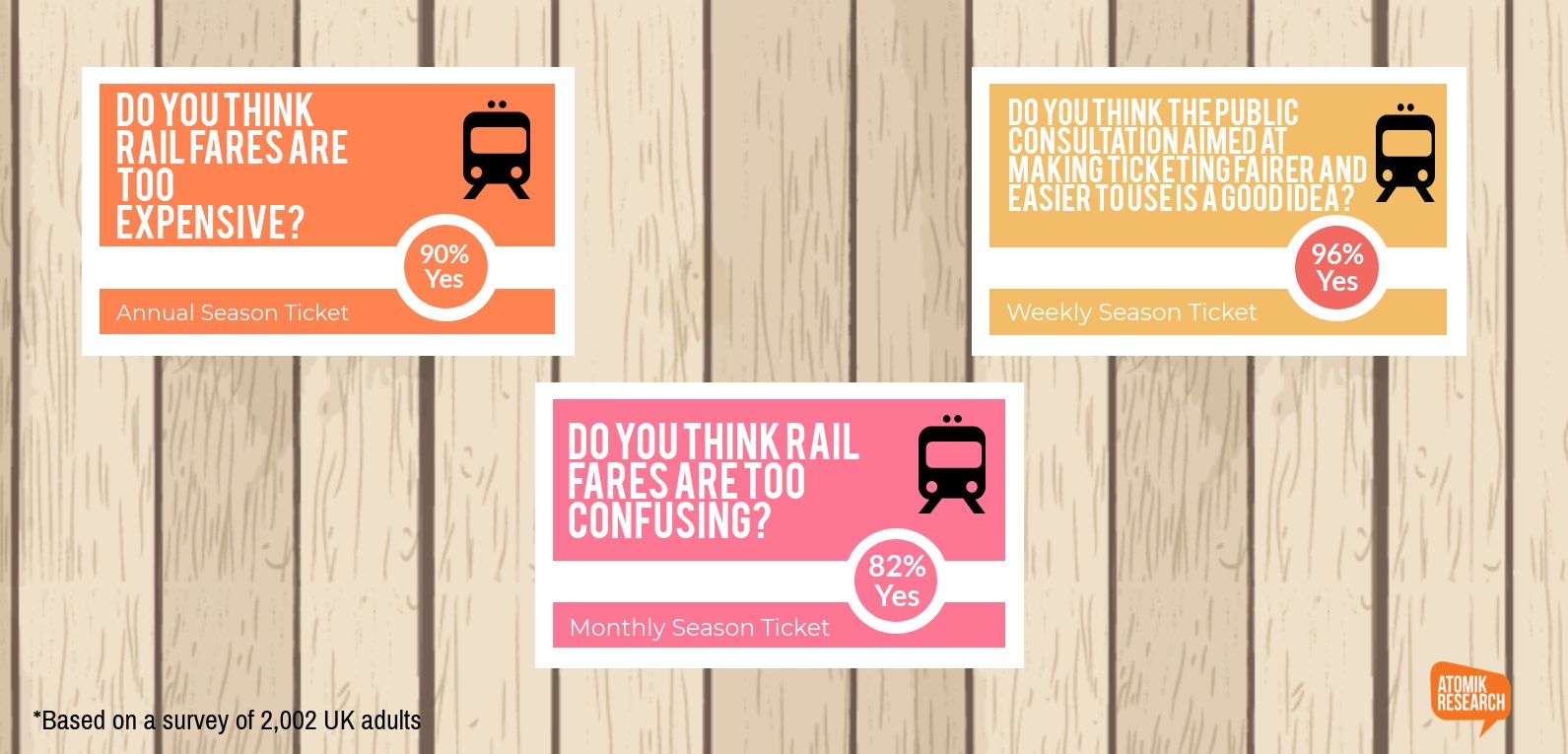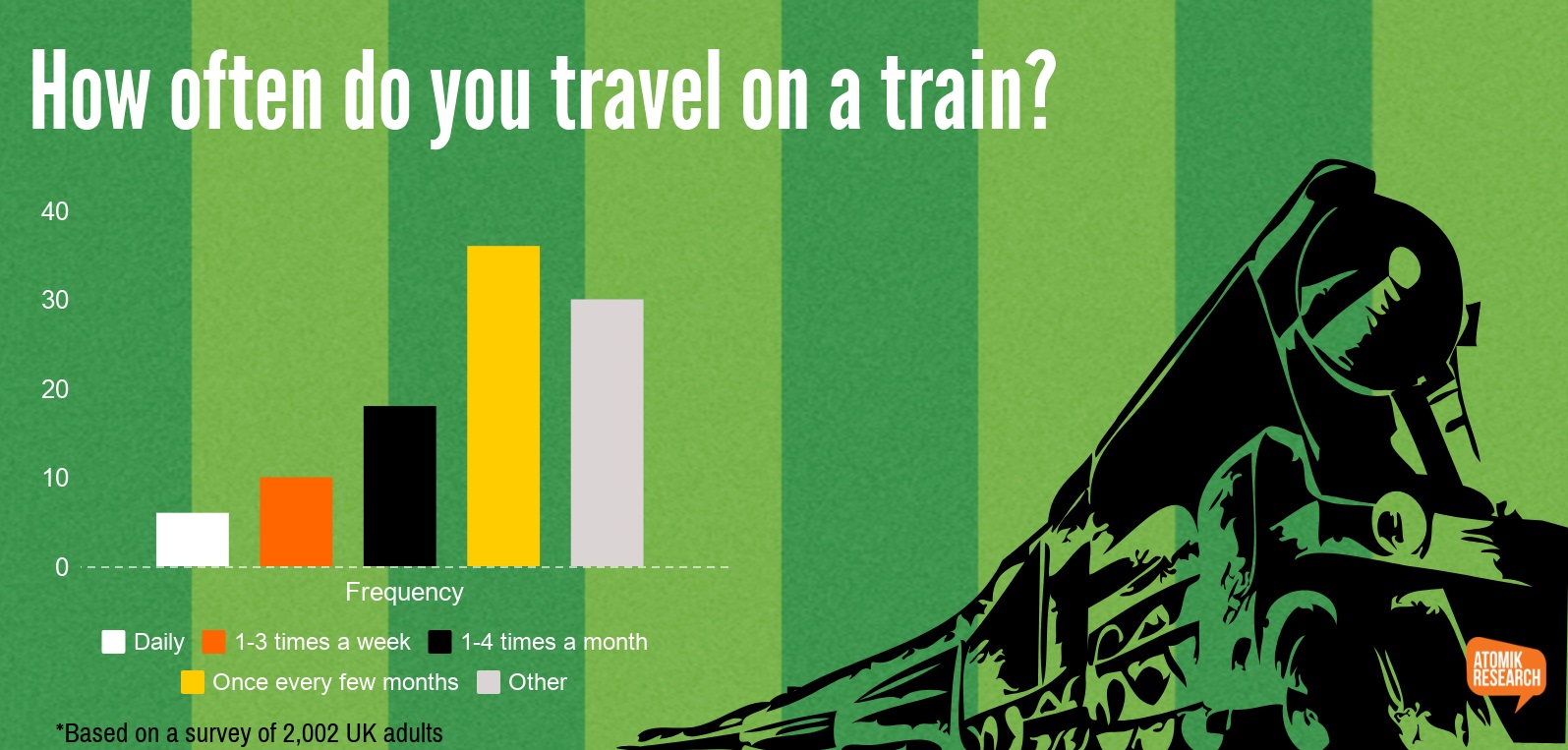Another thing we love to complain about is trains.
Delays, cancellations, bus replacement services, ticket price systems that would test the capabilities of a maths professor – the railway is an institution we love to hate.
In a bid to help bring the railways closer to Brits’ hearts, a nationwide scheme has been launched to change the fares system. Rules governing fares have expanded so much that there are now around 55m possible train ticket fares across the country. The consultation will run until September and aims to make the system simpler for travellers while not promising to reduce fares.
But is it enough?
Atomik Research polled 2,000 people to get their views on Britain’s rail system.
A huge majority – 90% – thought fares were too expensive and a similar number – 82% – said rail fares were too confusing.
And an even bigger majority – a massive 96% – backed the idea of the consultation, with young and old, men and women all supporting the plan.
 We also asked people whether or not they thought the railways should be renationalized. The process of privatising British Rail began in 1994 and was completed in 1997. The policy was controversial at the time and its benefits are still debated.
We also asked people whether or not they thought the railways should be renationalized. The process of privatising British Rail began in 1994 and was completed in 1997. The policy was controversial at the time and its benefits are still debated.
Supporters say privatisation has seen more investment in railways and less cost to the taxpayer. In 2001, Railtrack, which owned the track and signalling elements of the rail network, collapsed and its role was taken over by state-owned Network Rail.
Shadow Chancellor John McDonnell said in February this year that Labour could bring back British Rail as part of its renationalization plan. Nearly three-quarters (73%) of those surveyed agreed and said that Britain’s railways should be renationalized.
Support for renationalization was highest among Millennials – those aged between 25-34 – with 87% of those questioned backing the plan. Support fell to 65% among the 55-64-year-olds – possibly because the have clearer memories of crippling strikes and curly British Rail sandwiches.
 Millennials were also the age group most likely to use rail travel every day, with 19% catching a train daily. Despite this regular exposure to trains, most (80%) said British trains were good quality, while only 45% of people aged 55-64 agreed.
Millennials were also the age group most likely to use rail travel every day, with 19% catching a train daily. Despite this regular exposure to trains, most (80%) said British trains were good quality, while only 45% of people aged 55-64 agreed.
Men were slightly more inclined to approve of Britain’s trains than women, with 61% of blokes compared to 51% of women saying trains were good quality.
But trains really took a hammering when it came to reliability with more than half (53%) saying they thought trains were unreliable.
And when asked how likely it was that travellers would get a seat, 53% said it was likely, 22% very likely and 20% said it was unlikely.
It looks as though Brits will be able to rail against the state of our trains for some time to come.






